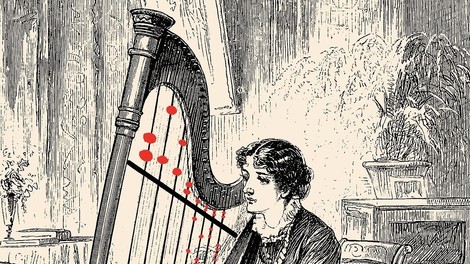Your podcast discovery platform
Curious minds select the most fascinating podcasts from around the world. Discover hand-piqd audio recommendations on your favorite topics.

piqer for: Globalization and politics Global finds Climate and Environment
Javier is a Berlin-based multimedia journalist. He completed a MA in International Journalism at City, University of London and is focused on humanitarian and conflict issues.
With experience in several countries, he's covered the refugee crisis, Turkey's coup attempt and the Kurdish conflict.
Among others, his work has been published at ABC News, Al Jazeera, Channel NewsAsia, RBB, IRIN News, El Confidencial, Público or Diario ABC.
Economists' Troubled Relationship With Humanists
We live in a world dominated by the economy.
Everything – from political institutions, to our education and health care systems – is subordinated to economic dynamics. The Soviet Union collapsed, free trade took over the entire world and there was little else to say. Some claim this globalisation is over—but many scholars believe it was precisely this sort of wild capitalism that brought us where we are today.
Economists have become worshipped figures, secular preachers of the 21st century: they talk using obscure words, constantly giving lessons and making predictions that more often than not fail catastrophically.
As a representative from a religious organisation – pick your favourite or most hated one – after gaining so much power and influence, economists try to explain all of human behaviour from their point of view, using only their discipline and language (profits, value, costs), forgetting and ignoring the rich complexities that – humanists insist – make us who and how we are.
In this article, John Lanchester reviews a number of books dealing with the complicated relationship between economists and humanists. And it's important for us to do so as well, because societies aren't a simple collection of numbers, just aspiring to maximise their gains.
If we don't fight that toxic narrative, if we let the wildest preachers of capitalism spread their gospel, there will always be room for things like the following to happen:
In 1974, seven West African nations got together, contacted donors, and set out to create the Onchocerciasis Control Program, overseen by the World Health Organization. The program was a huge success, in that it prevented hundreds of thousands of people from going blind, but there was a problem: the economists involved couldn’t show that the venture was worth it. A cost-benefit analysis was “inconclusive”: the people who were being helped were so poor that the benefit of saving their eyesight didn’t have much monetary impact. (...) In other words, the very thing that made the project so admirable—that it was improving the lives of the poorest people in the world—also made it, from an economic point of view, not really worth doing.
Stay up to date – with a newsletter from your channel on Global finds.
